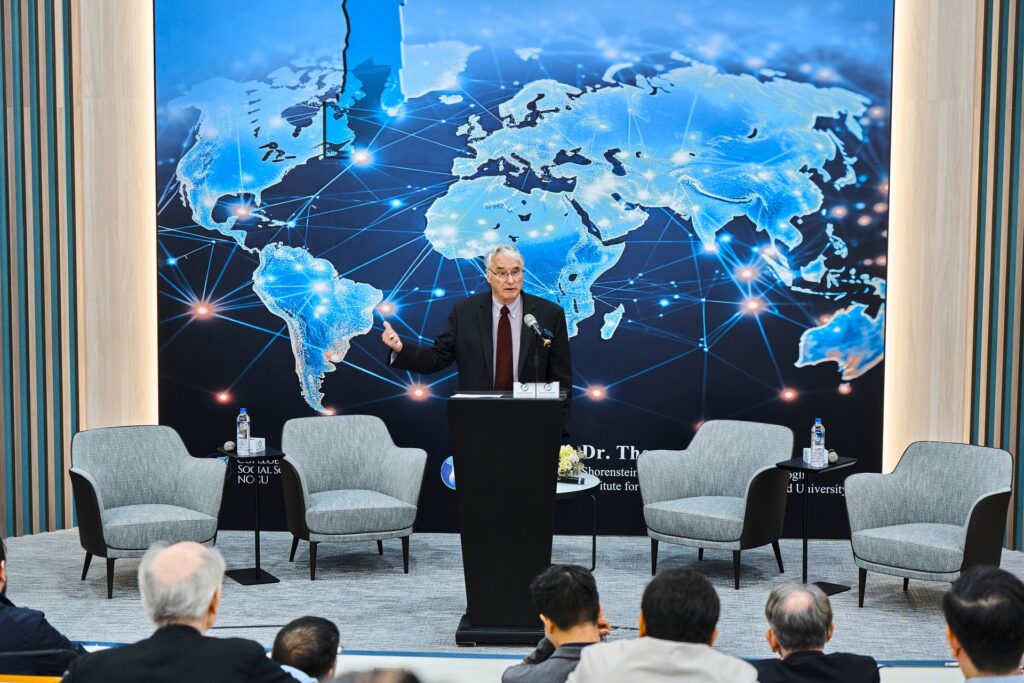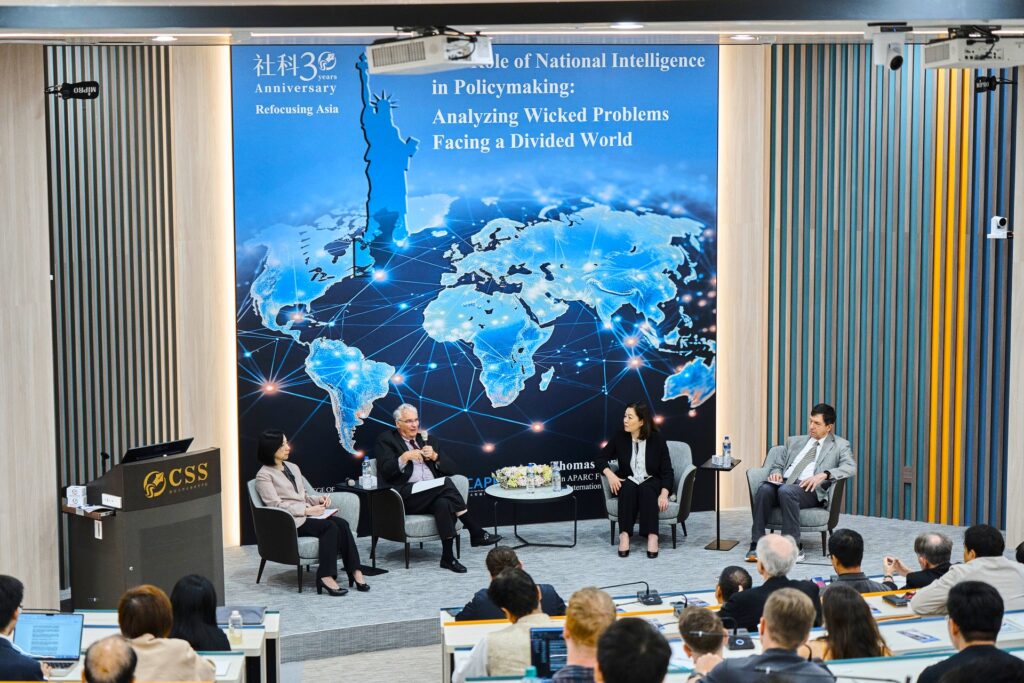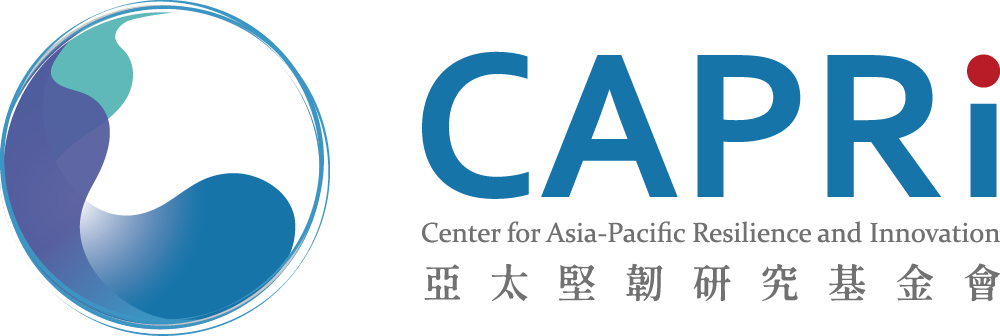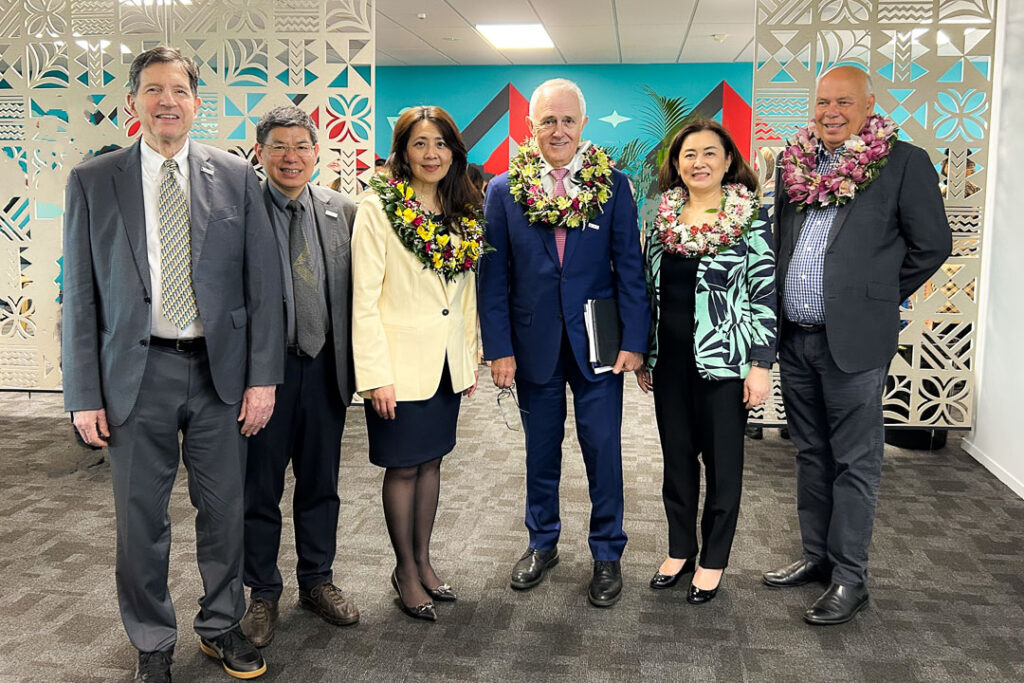TAIPEI, TAIWAN June 6, 2024 — The Center for Asia-Pacific Resilience and Innovation (CAPRI) invited Dr. Thomas Fingar, former Deputy Director of National Intelligence for Analysis and Chairman of the U.S. National Intelligence Council (2005–2008), at National Chengchi University (NCCU) to present a talk on the role of national intelligence in policymaking.
Given the critical role that professional intelligence analysis plays in policy discussion and formulation, CAPRI, a Taipei-based nongovernmental, nonpartisan international think tank focused on comparative public policy research of Asia-Pacific societies, invited Dr. Fingar to Taiwan. Over 100 individuals attended the lecture, including government leaders, diplomats, business representatives, scholars, and students.
Prof. Harry Harding, who is a CAPRI board member, Yushan Scholar at NCCU, and an expert in public policy and US-China relations, opened the forum. He shared his long-standing personal and professional connection with Dr. Fingar and provided a detailed introduction of Dr. Fingar’s work as an intelligence analyst, mentioning that under Dr. Fingar’s leadership, the Bureau of Intelligence and Research (INR), developed a reputation for its quality and unbiased analysis.
Dr. Fingar focused on the workings and usefulness of intelligence analysis in policymaking. He explained that intelligence involves filtering vast amounts of unclassified information to identify timely insights to support policymakers in their decision-making. Dr. Fingar also distinguished between academic research and intelligence work: academics choose their research questions and have ample time to explore them, while intelligence analysts must quickly address pressing issues tailored to the decision maker. He acknowledged that the intelligence community is not infallible, citing instances where it failed to predict events like the Soviet Union’s collapse. However, the value lies in the usefulness of the input rather than absolute accuracy.
Using various examples, including the Russian invasion of Ukraine, the resurgence of polio, and the effects of climate change, Dr. Fingar illustrated the challenges of dealing with “wicked problems”—complex issues that require long-term, multifaceted approaches. For instance, the intelligence community predicted that the 2022 Russia–Ukraine war would cause starvation in Africa and, consequently, mass migration because of the grain blockade. However, other factors including the interconnectedness of global markets and export restrictions by countries such as India prevented this adverse outcome. By contrast, as the polio cases began to rise globally, the intelligence community identified the preachings of a couple of clerics in northern Nigeria proclaiming that polio vaccine is a Christian strategy to sterilize Muslims. Eventually, engaging local Muslim clerics in mobilizing the community helped check the epidemic.
Factors crucial to effective intelligence include the expertise and integrity of analysts, the importance of trust and objectivity in their work, and the collaborative efforts required among intelligence communities and policymakers to address complex global challenges.
He ended his talk by saying, “Wicked problems are wicked because they can’t be solved by a single government.” They require cooperation with other countries, particularly key countries such as the US and China, to ensure that one international player doesn’t negate the solution implemented by the other.
His talk was followed by a Q&A session moderated by Prof. Syaru Shirley Lin, founder and chair of CAPRI. Dr. Fingar answered several questions related to the usefulness of intelligence research in not only foreign but also domestic policy making, privatization of intelligence analysis, sharing information with countries that are not US’s allies, defense diplomacy, prediction markets, as well as governing and interpretation of intelligence.
This lecture, co-hosted by the Ministry of Education Yushan Scholar Program and the College of Social Sciences at NCCU, will be available for viewing on the CAPRI website and the NCCU College of Social Sciences website.




